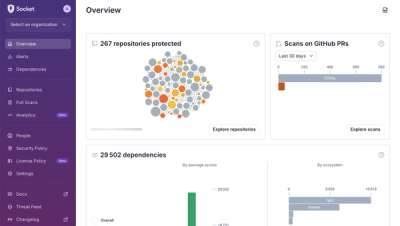
Research
Using Trusted Protocols Against You: Gmail as a C2 Mechanism
Socket uncovers malicious packages on PyPI using Gmail's SMTP protocol for command and control (C2) to exfiltrate data and execute commands.
shipit-utils
Advanced tools
npm install --save shipit-utils
var utils = require('shipit-utils');
Returns the Shipit object, regardless of your context (Grunt or Shipit).
var shipit = utils.getShipit(gruntOrShipit);
Register a task, regardless of your context (Grunt or Shipit).
The description arguement is optional, and will only try to pass along a task description if you are using Grunt (it will be ignored if you are using Shipit).
Fn|Array<String>Task function or array of task names to run in order. Note: If in a Grunt context and passing an array of task names, task will always be synchronous/blocking.
var task = function() {
return shipit.local('sleep 10s');
};
// Register a (blocking) task
utils.registerTask(gruntOrShipit, 'myTask', task);
// Run a series of tasks in order
utils.registerTask(gruntOrShipit, 'myTask', ['some', 'other', 'tasks']);
Run a task or array of tasks, regardless of your context (Grunt or Shipit).
String|Array<String>Test to see if all the values in an array are equal. Useful for determining if multiple remote servers are out of sync.
ArrayMIT
FAQs
## Install
The npm package shipit-utils receives a total of 4,608 weekly downloads. As such, shipit-utils popularity was classified as popular.
We found that shipit-utils demonstrated a not healthy version release cadence and project activity because the last version was released a year ago. It has 1 open source maintainer collaborating on the project.
Did you know?

Socket for GitHub automatically highlights issues in each pull request and monitors the health of all your open source dependencies. Discover the contents of your packages and block harmful activity before you install or update your dependencies.

Research
Socket uncovers malicious packages on PyPI using Gmail's SMTP protocol for command and control (C2) to exfiltrate data and execute commands.

Product
We redesigned Socket's first logged-in page to display rich and insightful visualizations about your repositories protected against supply chain threats.

Product
Automatically fix and test dependency updates with socket fix—a new CLI tool that turns CVE alerts into safe, automated upgrades.